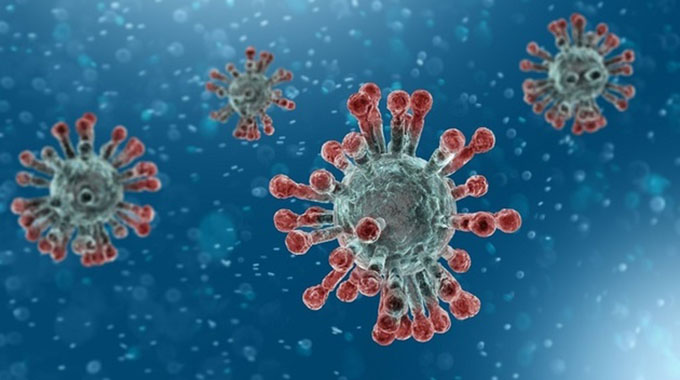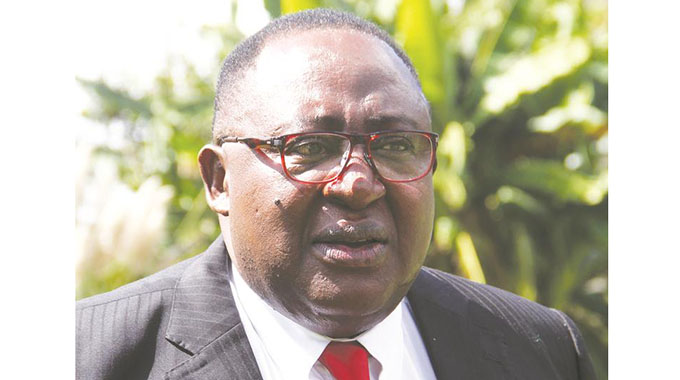Editorial Comment: Social pressure needed to save us all

Dealing with Covid-19 now that it is in our communities requires high levels of responsibility, individual and corporate, if we are going to cope, if we are to maintain very low levels of fatal cases and if Zimbabwe is going to pull through.
And this means far higher levels of cooperation with set procedures than we have seen so far and far less complacency.
The attitude that “it won’t happen here” must go. It is happening here. The attitude that it “won’t hit me” has seen some get sick. We are all at risk, and none of us knows, in advance, whether we will be fortunate with few or no symptoms or whether we will be very ill indeed.
More particularly, we do not know how those we live with and those we work with will suffer if we are infected and careless.
The reaction of the three businesses and two medical aid societies in Harare who at the end of last week faced infection within one of their units shows the way forward for other businesses: immediate reaction, immediate notification and immediate steps to protect the rest of their staff.
All five temporarily closed the unit where someone fell sick. All colleagues were immediately tested and then quarantined, waiting for confirmatory tests, and the premises were thoroughly disinfected.
We have no doubt that the rest of the enterprises have been told to take everything very seriously, redouble efforts, and take every precaution.
These highly-localised lockdowns have worked in other countries learning to live with Covid-19 and were intimated by the chief co-ordinator for the National Response to the Covid-19 pandemic, Dr Agnes Mahomva, last week in her report to the Cabinet.
Each outbreak, each cluster of outbreaks, needs to be isolated and all in danger in that cluster immediately tested.
The Government has continually stressed that there was never any possibility that Zimbabwe would escape Covid-19. It was a question of when, with every possible delay giving a few extra days for us to get ready and prepare to meet the challenge in practical ways.
It is fairly obvious that irresponsibility and complacency have brought us to the point where it is now appearing in our communities. We closed our borders, but while most returning residents sighed deeply and went through the taxing quarantine and testing procedures, grumbling of course as was natural, but still obeying the rules, a minority thought they knew better.
Border jumpers, and this possibly explains the spike in Bulawayo, so far our worst hit city and province, felt they had no need to do this. Others escaped from quarantine, some of them positive.
Others gave false addresses to the authorities so they could not even be tracked down. One managed to infect his whole family in Matabeleland South.
Even the rules that we can all obey to reduce risks to very low levels, wearing face masks and keeping our distance, are flouted far more often than being obeyed. Many treat a face mask as a neck warmer, fine if you are walking alone, a very bad idea if you are in a shop or a crowded street or in a bus, in a queue, or even sitting at work in an office with people you trust.
Social distancing can go by the board in bus queues at terminuses and in busy bus stops. Fear of queue jumpers, well founded fears unfortunately, mean people close up. You even see this in till queues, despite the major efforts made by most shops and supermarkets.
Police enforcement is ineffective. For a start it is largely concentrated on preventing unexempted people from entering town and city centres and making sure everyone in a car or bus is wearing a mask.
Looking at traffic approaching a roadblock shows a different picture, masks frequently being pulled up in the last 50m, not exactly the sort of effort required to minimise risk. Even police officers coming off duty frequently free at least their noses as they walk the streets, and often they too have a neck warmer rather than a mask.
Perhaps more enforcement of mask wearing and social distancing on the streets and in bus queues would minimise risks more effectively than random checking of exemption letters at roadblocks. And, as we have already suggested, more enforcement of these two simple rules in every work place, with supervisors becoming officious, is now needed.
Social pressure, where treating the maskless and those who crowd us in the same way we treat those with trouser zips undone, is the only real solution.
These rules do protect, as a glance through the lists of countries show. Those countries where people tend to have a co-operating culture or at least a culture where social pressures ensure rule following, tend to have significantly lower infection rates than their near identical neighbours.
Even in the US, where the different states have different rules, the variations are very noticeable.
In New York City, an early epicentre, the unmasked are treated as lepers. Many there might now wish the rules had been enforced more strictly much earlier, but we can learn from successes as well as failures.
There are practical reasons why, even if we have to live with Covid-19 until the teams of scientists have produced a safe and effective vaccine, and factories have produced 7 billion doses, we need to slow rates of infection. Many countries saw medical facilities swamped, and testing reserved for the most vulnerable, even though a little over 80 percent of infected people can recover safely at home without attention.
Zimbabwe has made tremendous strides in an intensive public-private joint effort to get facilities in place to treat the ill. But could we cope with even 10 000 active cases at one time, which would imply well over 1 000 in isolation wards and up to 500 in special care? This is worth pondering, and everyone should be thinking of what it means to them in that fairly modest level of outbreak.
This is why we all, and all means all, have to be careful, take precautions and be responsible to ourselves and others. We cannot avoid the Covid-19 pandemic, but we do not have to infect others or even risk infecting others. Simple rules, if we all follow them, do work, but only work when we all follow them.










Comments